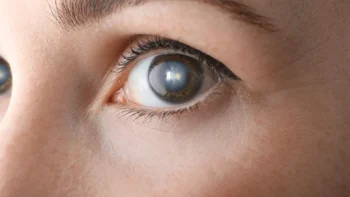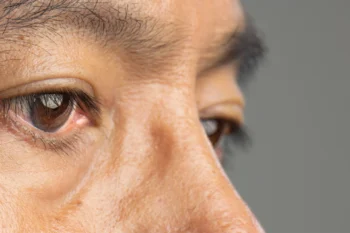Cataracts are a condition in which the lens of your eye becomes cloudy. As a result, it can often feel like you’re looking through a foggy window. It’s more challenging to read, drive, and perform everyday tasks.
Generally, cataracts develop slowly. This causes vision to worsen over time, and it becomes more difficult to see. If you have cataracts, you might notice your vision becoming blurry. They can cause issues with night vision, seeing halos, and experiencing an increased sensitivity to light. Perhaps you’re beginning to need stronger eyeglasses. Eventually, the situation may become severe enough that you need cataract surgery to correct your eyesight.
Needing eye surgery can be a scary concept. But, the sooner you get treatment, the greater your chance of recovering vision. After all, you’re entrusting your vision to someone who will perform a delicate procedure on your eyes. Knowing what to expect throughout the entire process and how to find a quality eye surgeon can help make things much easier. In this article, we’ll provide you with a complete cataract surgery guide to help you navigate the process.
How Common Are Cataracts?
Cataracts are a common condition that affects nearly 24.5 million Americans over the age of 40. Approximately half of all Americans 75 and older have them. The condition affects men and women of all races, but women develop them at a slightly higher rate.
Experts expect the number of people with cataracts to double by the year 2050 from 24.5 million to about 50 million. They predict a majority of those who develop them will be white, and other races will likely see an increase in prevalence, too.
What to Expect With Cataract Surgery
The thought of undergoing a surgical procedure on your eyes can be a bit unnerving. At Brimhall Eye Center, we want you to feel safe through every step of the process. Here, we’ll go over what you can expect.
Before Cataract Surgery
Before you undergo cataract surgery, you’ll meet with your eye surgeon several times. They’ll go over your surgical options in-depth to determine the best course of action and the best lens options based on your specific situation.
One thing to note is that you may need two separate surgery dates. While the procedure itself doesn’t take very long, we can only do one eye at a time.
During Cataract Surgery
Brimhall Eye Center uses either high-frequency ultrasound or a laser to perform your cataract surgery. Both procedures are similar.
Before getting started, the surgeon numbs your eye so that you won’t feel a thing. After breaking up the clouded lens with the ultrasound or laser, the surgeon removes it carefully. Next, they replace the old lens with an artificial one. Finally, they close the incision and place a protective shield over the eye. The whole process takes about 15 minutes.
Dropless Cataract Surgery
Following cataract surgery, you typically need to apply eye drops. These medications help to protect your eyes from infections and inflammation. While essential, these drops can be inconvenient. You have to put them in several times a day, and you might forget. Dropless cataract surgery eliminates the need for any post-surgical eye drops.
The surgery itself isn’t any different than other surgical procedures. Your surgeon removes the clouded lens from your eye and replaces it with an artificial one. During the procedure, your surgeon also administers a combination of medications using a needle. So, instead of sending you home with eye drops, you go home with the medication already there. That gives you one less thing to worry about, which can be a relief.
After Surgery
Following surgery, your vision will be a bit blurry, but that should clear up in about 24 hours. With regular surgery, you’ll receive your eye drops and instructions for use. Following those instructions is essential for protecting your eye and avoiding infection. Before you go home, you’ll also schedule a follow-up for the next day so that your surgeon can ensure you’re healing properly.
Risks Associated With Cataract Surgery
While cataract surgery is generally safe, there is no surgical procedure without at least some risk. Your surgeon will go over these risks before your procedure, as well as what you can do to help avoid complications.
One of the biggest potential risks following cataract surgery is an eye infection. Following the instructions for your eye drops will help to minimize this risk. With dropless surgery, the medication is already in your eye. It can help to reduce your risk of infection three- to eight-fold.
Other potential risks of cataract surgery include:
- Eye irritation
- Inflammation
- Bleeding
- Dislocation of the new lens
- Drooping eyelid
- Retinal detachment
- Vision loss
Tips for Finding an Eye Surgeon
Finding an eye surgeon to perform cataract surgery can be almost as daunting as the thought of needing the procedure in the first place. Here are a few tips that can help make the process of finding someone you can trust a little easier:
- Ask for recommendations. If you know someone who underwent cataract surgery, ask them about their surgeon and overall experience.
- Read reviews. Scan through online reviews from past patients. These reviews can provide you with some insight regarding what to expect and how the surgeon treats their patients.
- Schedule a consultation. Don’t hesitate to schedule a consultation with a surgeon so that you can meet them in person. Assess how they communicate with you, how they treat you, and if they provide you with satisfactory answers to your questions.
- Trust your intuition. A surgeon can have the most outstanding credentials in the world, but it’s still important that you feel safe. You want to be sure to choose someone who makes you feel as though you’re in the right hands, not someone who makes you feel apprehensive or anxious.
Final Thoughts
Cataracts can severely affect your vision. Fortunately, surgery can help to improve your eyesight, allowing you to see more clearly again. Knowing what to expect with cataract surgery may put you more at ease. It’ll also allow you to feel more comfortable and confident with every step from start to finish.
Have you been diagnosed with cataracts, or have you started noticing symptoms of cataracts? Surgery may be a good option. Contact Brimhall Eye Center today to schedule your free consultation and find out if cataract surgery is right for you.





